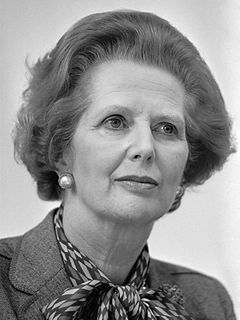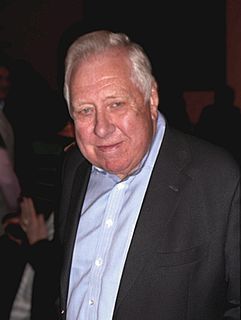Plaid Cymru is a social-democratic political party in Wales advocating Welsh independence from the United Kingdom within the European Union.

The 1983 United Kingdom general election was held on Thursday, 9 June 1983. It gave the Conservative Party under the leadership of Margaret Thatcher the most decisive election victory since that of the Labour Party in 1945.
The Labour Party is a social-democratic political party in the Republic of Ireland. Founded in 1912 in Clonmel, County Tipperary, by James Larkin, James Connolly, and William X. O'Brien as the political wing of the Irish Trades Union Congress, it describes itself as a "democratic socialist party" in its constitution. Labour continues to be the political arm of the Irish trade union and labour movement and seeks to represent workers interests in the Dáil and on a local level.
In UK politics, the Parliamentary Labour Party (PLP) is the parliamentary party of the Labour Party in Parliament: Labour MPs as a collective body. Commentators on the British Constitution sometimes draw a distinction between the Labour Party and the Conservative and Liberal parties. The term Parliamentary Labour Party refers to the party in Parliament, whereas the term Labour Party refers to the entire Labour Party, the parliamentary element of which is the PLP.

The Labour Party, formerly known as the Malta Labour Party (MLP), is a social-democratic political party in Malta. Along with the Nationalist Party (PN), the Labour Party is one of two major contemporary political parties in Malta. Since the March 2013 general election, the party has been the governing party in the Maltese House of Representatives. The Labour Party is a member of the Party of European Socialists, and was a member of the Socialist International until December 2014.

The European Parliament Election, 1994 was the fourth European election to be held in the United Kingdom. It was held on 9 June, though, as usual, the ballots were not counted until the evening of 12 June. The electoral system was, for the final European election, first past the post in England, Scotland and Wales and single transferable vote in Northern Ireland. This was the first election with 87 MEPs, the European Parliamentary Elections Act 1993 increased the number of seats for the UK from 81. For the first time, the UK did not have the lowest turnout in Europe. Turnout was lower in the Netherlands and Portugal.

The 1983 Labour Party leadership election was an election in the United Kingdom for the leadership of the Labour Party. It occurred when former leader Michael Foot resigned after winning only 209 seats at the 1983 general election, a loss of 60 seats compared to their performance at the previous election four years earlier. This was the worst showing for Labour since 1931.
Welsh Labour is the part of the United Kingdom Labour Party that operates in Wales. Labour is the largest and most successful political party in modern Welsh politics, having won the largest share of the vote at every UK General Election since 1922, every Welsh Assembly election since 1999, and each European Parliament election from 1979 until 2004, as well as the 2014 one.

Anne Vondeling was a Dutch politician of the Labour Party (PvdA) and agronomist.

A deputy leadership election for the Labour Party in the United Kingdom took place on 2 October 1988 when John Prescott and Eric Heffer challenged Labour's incumbent Deputy Leader Roy Hattersley. Hattersley had served in the position since 1983.

The Leader of the Labour Party is the most senior political figure within the Labour Party in the United Kingdom. Since 12 September 2015, the office has been held by Jeremy Corbyn, who has represented the constituency of Islington North since 1983.

The 2011 Scottish Labour Party leadership election was an internal party election to choose a new leader of the Scottish Labour Party. The election followed the announcement by Iain Gray that he would stand down as leader in the autumn of 2011 following the party's heavy defeat to the Scottish National Party in May's Scottish Parliament general election. Gray won the previous contest in September 2008.
Elections to the Labour Party's Shadow Cabinet took place on 4 December 1980, having been delayed due to the October election of new Party Leader Michael Foot. In addition to the 12 members elected, the Leader (Foot), Deputy Leader, Labour Chief Whip, Labour Leader in the House of Lords, and Chairman of the Parliamentary Labour Party were automatically members.
Elections to the Labour Party's Shadow Cabinet took place on 19 November 1981. There were 15 posts, rather than 12 as in previous years. In addition to the 15 members elected, the Leader, Deputy Leader, Labour Chief Whip, Labour Leader in the House of Lords, and Chairman of the Parliamentary Labour Party were automatically members.

A deputy leadership election for the Labour Party in the United Kingdom took place on 2 October 1983 to replace incumbent Deputy Leader Denis Healey. Healey had served in the position since 1980, becoming deputy leader at the same time that Michael Foot became party leader. Foot and Healey had both announced their resignations after the general election on 9 June 1983, in which a disastrous performance left the Labour Party with just 209 seats in parliament.
The annual election to the Labour Party's Shadow Cabinet was conducted in 1987. In addition to the 16 members elected, the Leader, Deputy Leader, Labour Chief Whip, Labour Leader in the House of Lords, and Chairman of the Parliamentary Labour Party were automatically members.

The Leader of the Labour Party is the highest ranked politician within the Labour Party in New Zealand. He or she serves as the parliamentary leader and leading spokesperson of the party. Since 1 August 2017, the office has been held by Jacinda Ardern, who is the MP for Mount Albert.

The 2016 Labour Party leadership election was called when a challenge to Jeremy Corbyn as Leader of the Labour Party arose following criticism of his approach to the Remain campaign in the referendum on membership of the European Union and questions about his leadership of the party.
Elections to the Labour Party's Shadow Cabinet occurred in December 1971. In addition to the 12 members elected, the Leader, Deputy Leader, Labour Chief Whip, Chairman of the Parliamentary Labour Party, Labour Leader in the House of Lords, and Labour Chief Whip in the Lords were automatically members. The Labour Lords elected one further member, Baron Champion.









